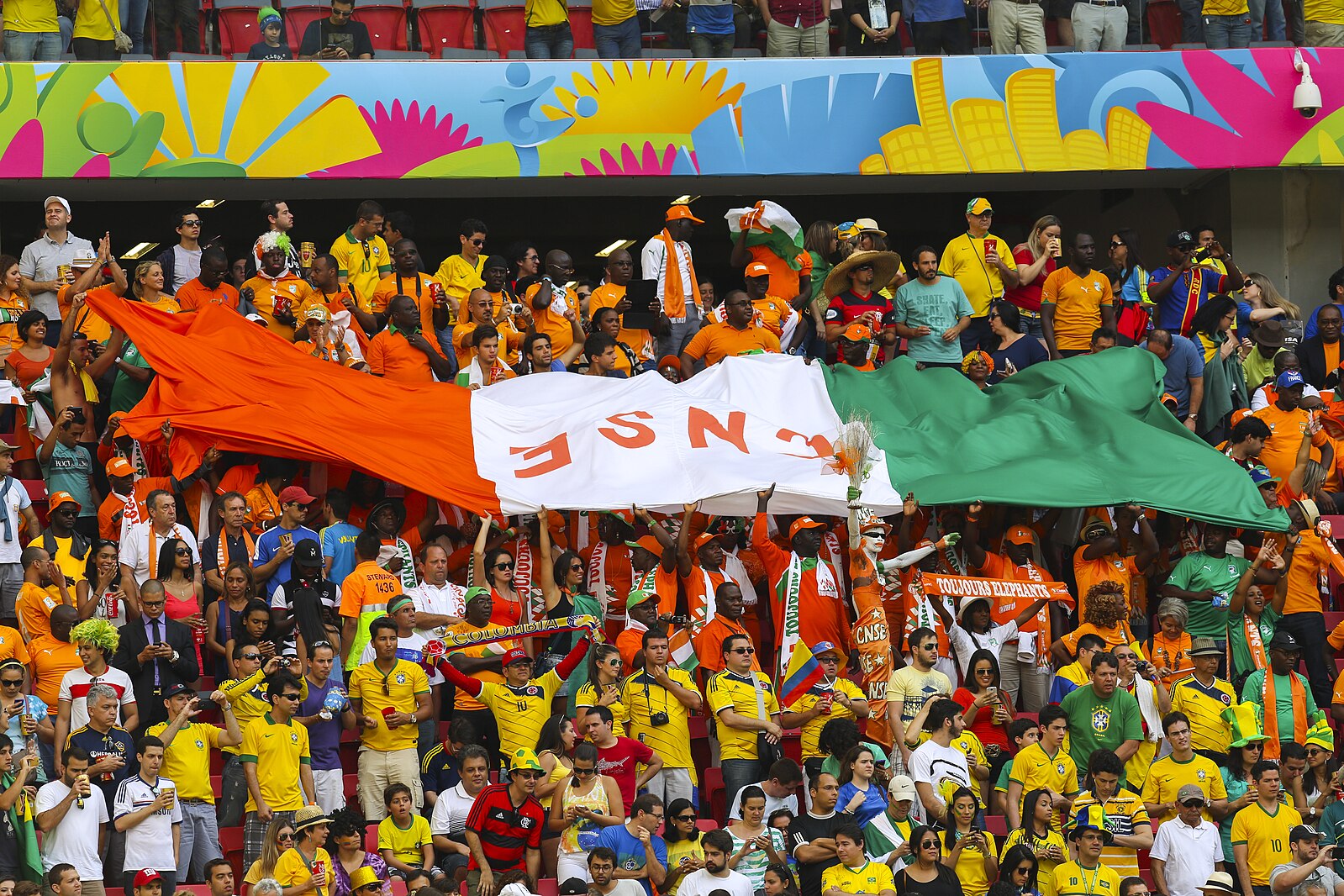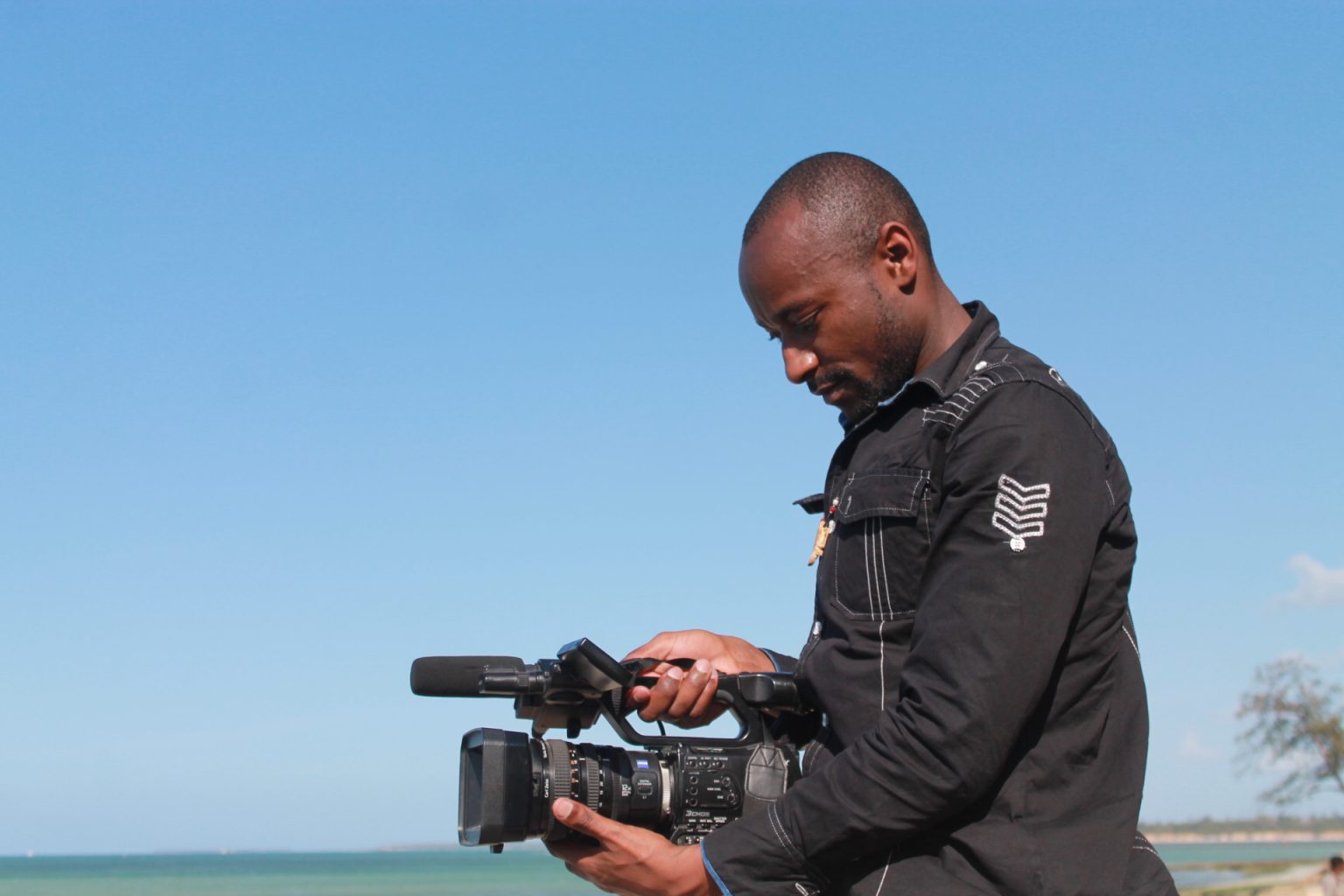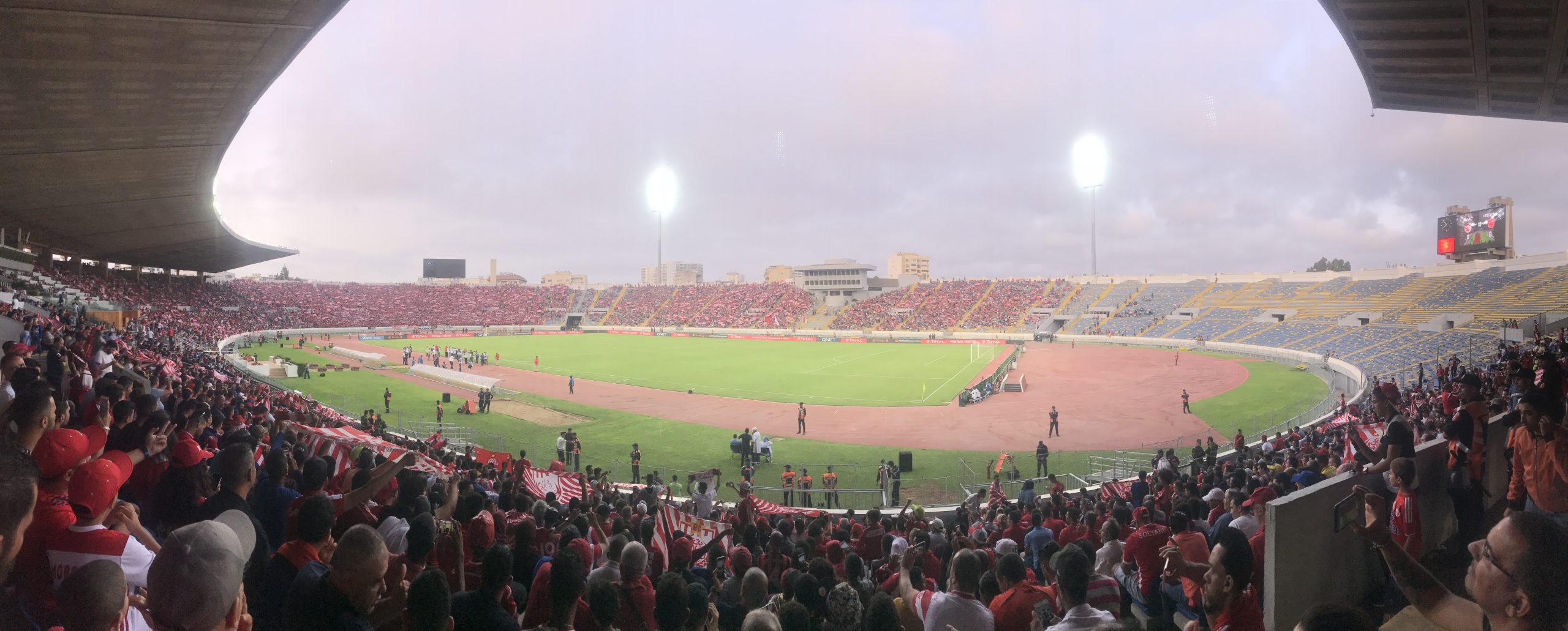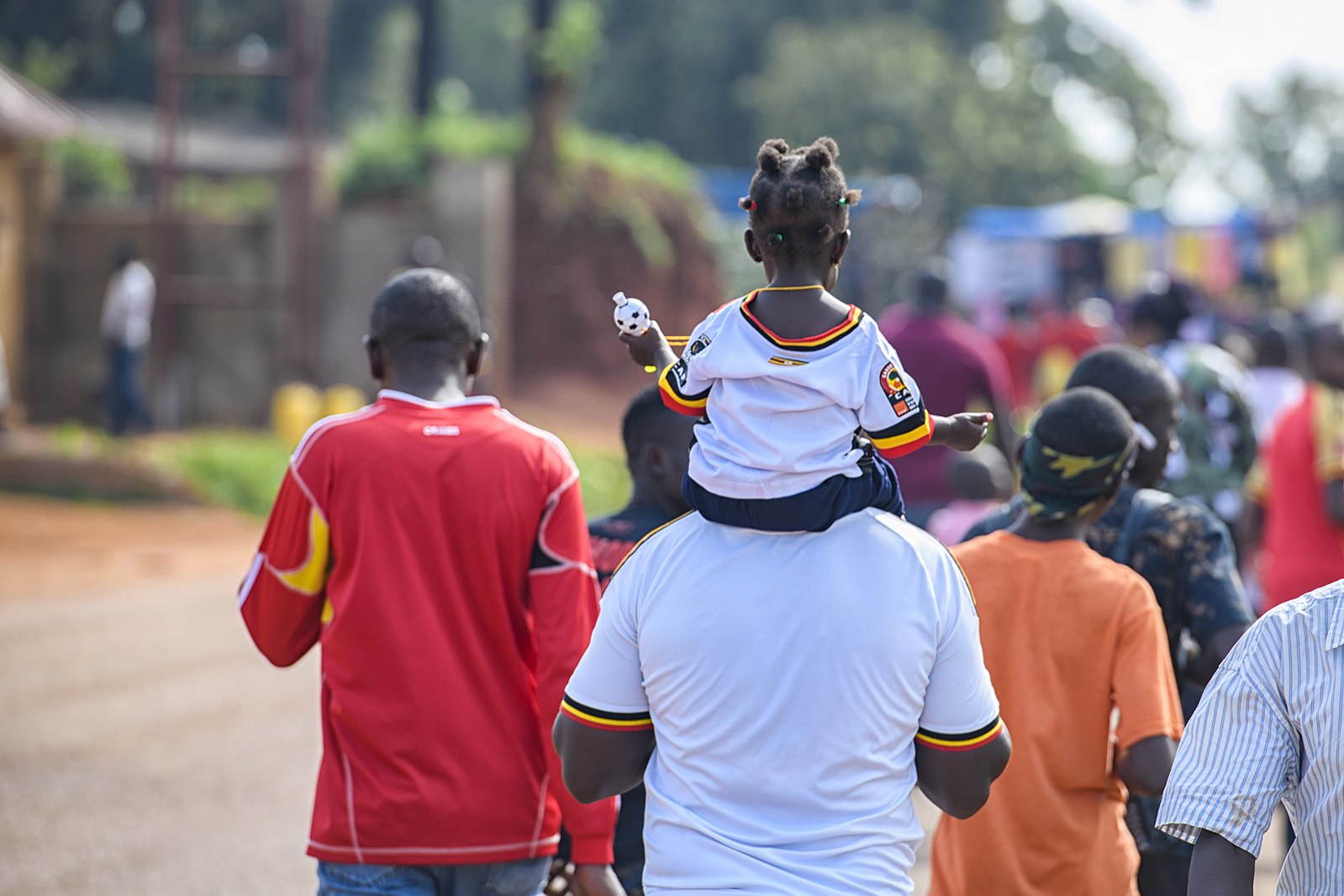Nous recrutons actuellement pour un certain nombre de postes. En savoir plus
Les Éléphants – The team that personified peace

As Côte d’Ivoire prepares to host the African Cup of Nations (AFCON) later this month, the Ivorian national team faces immense popular expectations. Not only will home fans want Les Éléphants to outplay continental footballing rivals, but the players themselves also have to live up to a major legacy. The country’s football team has historically served as a canvas for citizens to imagine the potential of a re-united Ivorian nation.
On 8 October 2005, Côte d’Ivoire’s golden generation managed to secure one of the national team’s greatest successes – its first qualification for the 2006 FIFA World Cup – surviving a ‘group of death’ containing continental heavyweights Egypt and Cameroon. The victory came against the backdrop of the First Ivorian Civil War, which had erupted with a military rebellion three years earlier. The episode prompted the team’s star player, Didier Drogba, to deliver this message after the game:
Men and women of Côte d’Ivoire, from the north, south, centre to west, we have proved today that all Ivorians can live together and play together with a common goal – to qualify for the World Cup. We promised you the celebrations would unite the people. Today, we beg you, on our knees… Please lay down your weapons and hold elections.
A house divided
Drogba references the different geographic zones of the country as the civil war was a primarily a conflict over ethnic indigeneity – who should be considered Ivorian. The question had surfaced in the wake of the death of founding president Félix Houphouët-Boigny in December 1993, which was accompanied by an economic crisis following the devaluation of the CFA Franc in January 1994. Houphouët-Boigny’s interim successor, Henri Konan Bédié, employed xenophobic rhetoric and amended the country’s electoral law to exclude his main political rival, former prime minister Alassane Ouattara, from presidential polls.
This represented a paradigm shift from the liberalism of the Houphouët-Boigny era, under which the government invited citizens of Upper Volta (now Burkina Faso) and Mali to work the land and settle in the country. Côte d’Ivoire needed to attract labourers to develop the cocoa sector, and promised land to anyone who worked it, rather than reserving plots for the “sons of the soil”. While this paved the way for an Ivorian economic miracle, it also laid the seeds for a political crisis following Houphouët-Boigny’s death.
With roughly a quarter of the Ivorian population having been born abroad, the concept of Ivoirité – or a common cultural identity – was mobilised by a series of political firebrands. These included Robert Guéï, who ousted Konan Bédié in 1999, and introduced Ivoirité in a new exclusionary constitution in 2000, and former trade union leader Laurent Gbagbo, who defeated Guéï at the ballot box that year. All three men were eager to draw exclusive and increasingly rigid ethnic lines over who could be considered indigenous to the country in a bid to exclude Ouattara from political competition. Such exclusionary policies and contested ballots, in turn, fueled the mutiny which ignited the civil war in 2002, with rebels demanding a rerun of the 2000 presidential election and the end of exclusionary citizenship policies.
Drogba as a symbol of political reconciliation
In this fraught environment, emerged Côte d’Ivoire’s multi-ethnic golden generation of footballers, led by captain Didier Drogba. As is often the case, the national sports team came to serve as an allegory for the nation, imbued with differing conceptions of its ambitions and afflictions, and acting as a key propellor of the national imagination. In Côte d’Ivoire, the team became a key site for reimagining a nation fractured by narrow claims of indigeneity.
Often the best way to naturalise a political statement is to say it isn’t political. Although Drogba’s dressing room speech was overtly political in its content, it was delivered in an impromptu fashion, with the team locked in arms. The endearingly authentic presentation enhanced the salience of its content and, perhaps most importantly of all, enabled Drogba to speak directly to millions of Ivorians across the country – reaching an audience far greater than any political rally.
Drogba and the team consolidated these efforts two years later, playing a key role in moving the venue for a high-profile qualifying match for the 2008 AFCON from Abidjan to Bouaké. The central city had become a rebel stronghold following the outbreak of the conflict, with its stadium occupied by the mutineers and reportedly used for summary executions. However, in 2007, Bouaké served as a locus for national reconciliation, with its stadium first hosting Les Éléphants’ triumphant 5-0 victory over Madagascar on 3 June, followed by a peace flame ceremony to mark the end of the civil war on 30-31 July. In a break with its contested history, Bouaké’s arena was subsequently renamed Stade de la Paix (stadium of peace) and has since been upgraded from 24,000 to 40,000 seats ahead of this year’s AFCON.
From outsider to national unifier
Yet at the heart of Drogba’s iconic status lies a central paradox. While Drogba was born in Abidjan, he was raised in France from the age of five, has never played for an Ivorian club, and does not speak any local Ivorian languages. However, his distance from local particularities combined with his global stardom as a key player in the popular English Premier League amplified his national appeal, serving as a strength, and helping to dismantle tensions between different ethnic groups. Indeed, Drogba’s identity goes further and presents a compelling challenge to the conventional understanding of citizenship confirmed within the boundaries of the nation-state.
The Ivorian icon’s links to France, England and Côte d’Ivoire, illustrate the limitations of methodological nationalism – that is the treatment of the nation-state as the single unit of analysis. Drogba’s identity and the construction of his symbolic status transcends narrow conceptions of citizenship, indigeneity and even the borders of the single nation where he is most revered. Rather, they reflect transnational dynamics bearing similarities with several other political phenomena – from the very formation of the Ivorian state to the development of its cocoa sector.
The narrative surrounding Côte d’Ivoire’s golden generation may resemble a fairy-tale, yet these stories epitomise the political imagination indispensable for fostering communal bonds and nation-building – a tapestry of collective metaphors evoking hope, ambition, and community spirit. While Les Éléphants were not the panacea for enduring peace, they played a significant symbolic role in getting the country to deal with its complex history.
Drogba’s active role in national reconciliation bears historical parallels to the role George Weah played as a footballer in his home country of Liberia. Following his retirement from professional football, Weah stood for transitional elections in 2005, losing to Ellen Johnson Sirleaf. He was eventually elected as a Senator in 2014 and as President of Liberia in 2017. Weah ultimately became a central figure in a moment of reconciliation, conducting the first peaceful transfer of power in the absence of UN peacekeepers since the conclusion of the war – a conflict he railed against during his playing career.
As Weah and Drogba show, sports can be powerful vessels for political statements and AFCON, alongside its hosts Côte d’Ivoire, serve as a poignant reminder of international football’s potential to facilitate the negotiation and social construction of citizenship.
About the author
Lami Mabifa is an Associate Consultant at Africa Practice and works with various clients across the continent, conducting research, providing analysis and insights, and supporting stakeholder engagements. He can be reached at [email protected].
Proud to be BCorp. We are part of the global movement for an inclusive, equitable, and regenerative economic system. Learn more


